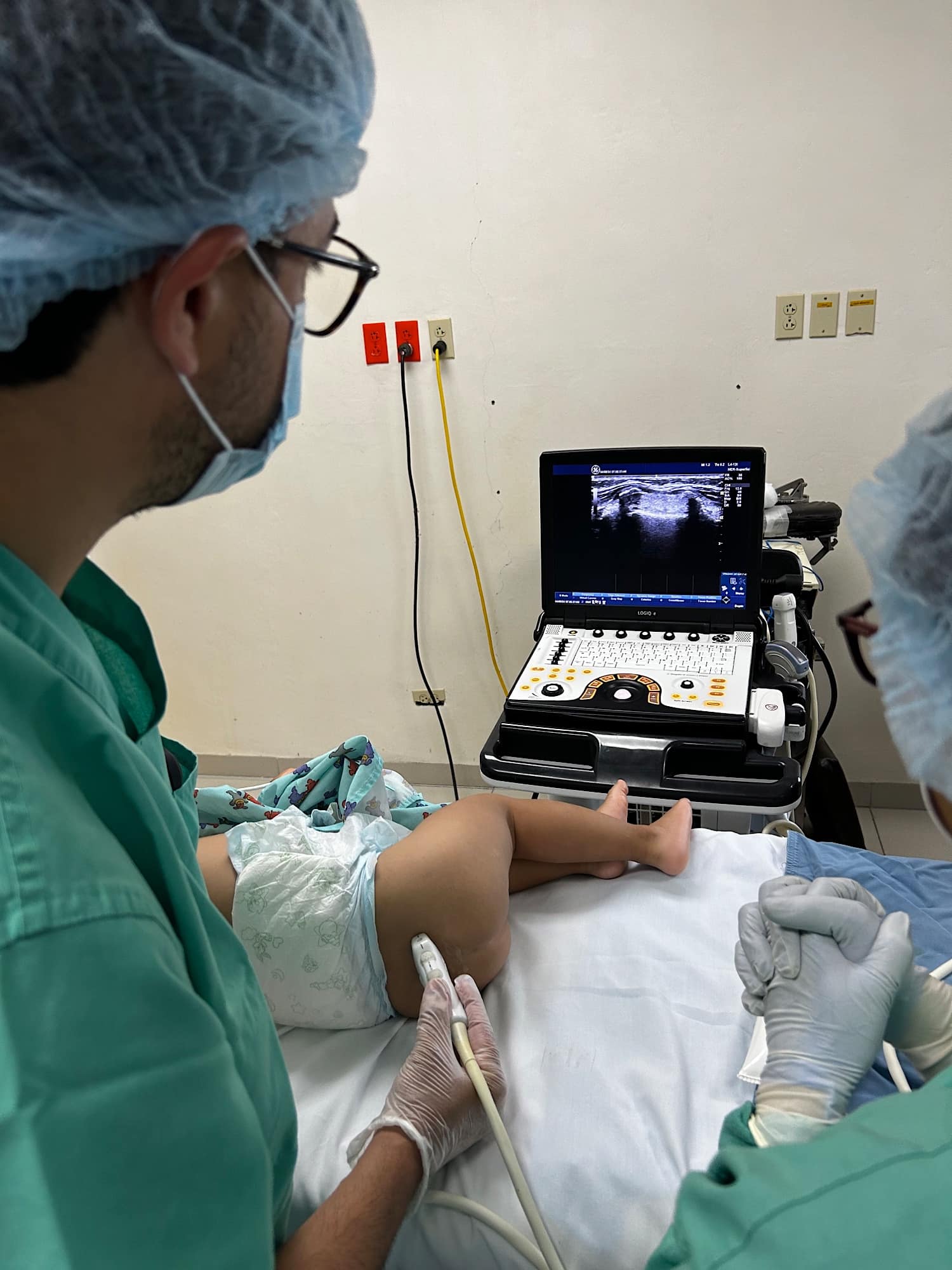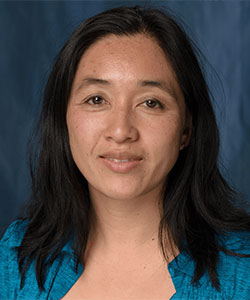Insights for the Burgeoning Global Health “Educator”: 5 Things I Did Not Realize About Offering My “Expertise” to Low-and Middle-Income Countries
Cite as: Le-Wendling L, Dohlman L, Jimenez-Ruiz F. Insights for the burgeoning global health “educator”: 5 things I did not realize about offering my “expertise” to low -and middle-income countries. ASRA Pain Medicine News 2024;49. https://doi.org/10.52211/asra080124.006.
An incredible amount of behind-the-scenes thought, decision-making, and work is done once that initial desire to contribute to a global health mission is sparked. For the medical experts who generously volunteer their time and effort, the intent and hope are that each trip will improve patient care and generate enthusiasm for our profession. Thankfully, for those just entering this field, there is ample experience and insight from predecessors to use as a guide. Here, we highlight five practical tips that would increase the value of the global health educator’s contributions to low-resource areas.
Tip#1
Match the medical volunteer's skill set to the region's needs. Performing a needs assessment of the host institution will assist with better self-allocating educators to the area where they can be most helpful.1 Much of the exploratory work has been done by reputable organizations such as ACS Operation Giving Back, American Society of Anesthesiology’s Global Humanitarian Outreach, Society for Education in Anesthesia, Society for Pediatric Anesthesia (SPA), World Federation of Societies of Anaesthesiologists, Health Volunteers Overseas, Kybele, or even your own organization. ASRA Pain Medicine has a special interest group devoted to global health where you can find support and guidance from experienced and enthusiastic colleagues who have been or are currently involved in global health projects. These colleagues or organizations can also help with trip planning to minimize your burden on the host institution and maximize your ability to assist.
Tip #2
Craft an educational plan with concise, clear, and easily translatable messages. Recognize that it may take twice as long to communicate any teaching concepts to listeners when translations are needed. Your educational plan should address basic safety principles, as unnecessary deaths still occur worldwide during anesthetic procedures. The basics of airway management, adequate volume resuscitation, and recognition of high spinals are important to discuss. Continual self-education should be emphasized and supported by providing free or inexpensive educational resources, such as PDFs or physical copies of the presented material, as internet access can be spotty in many low-resource settings (Figure 1).

The limited resources and different organizational structures should also be considered when teaching (Figure 2). Pre-trip workshops to better understand cultural differences and local medical care concepts and needs may help align the expectations of both parties.

Broaden your anesthetic knowledge beyond your sub-specialization because you may be asked to address topics outside your area of interest. American Society of Anesthesiologists refresher courses can be useful for you to refresh your knowledge.
Plan on repeat visits (as long as your hosts request you to do so) instead of one or two brief trips. The success of educational projects depends on mutual relationship building and cooperation. This takes time but is crucial to the sustainability of educational development programs.
Recognize that it may take twice as long to communicate any teaching concepts to listeners when translations are needed.
Tip #3
Be adaptable, nonjudgmental, and accommodating of local culture. Global health volunteers from high-income countries often have to adjust their mindsets as they may have implicit biases about medicine.2 Health care rationing occurs and can be a cultural shock to the volunteers. Practice non-judgmental observation and ask questions diplomatically. There may be very good reasons why medical care is given in a way you are not accustomed to, but that makes sense in the local setting. Volunteers may encounter situations where differing principles and beliefs can be uncomfortable. In these situations, volunteers need to remember that they are guests in the host country. Respectful dialogue and role modeling ethical behavior may be more welcomed and result in faster improvements than giving the impression of criticism.3
On the volunteers’ part, constant self-reflection is necessary to understand the benefits of what they teach. Global health missions are most ideally an exchange of information as opposed to a one-way delivery of information, though volunteers should be very careful not to overestimate or underestimate the local medical providers’ knowledge.4
Tip #4
Be cognizant of the local health and safety hazards and be prepared to navigate them.5 If global health educators are ill or hurt, they can increase the burden of the host institution. To avoid this, volunteers should visit their travel clinic to obtain recommended vaccinations, malaria prophylaxis, or other recommended medications. They must bring their own universal precaution materials if they plan to perform or assist with procedures and consider a plan for HIV postexposure prophylaxis. Knowledge of political instability and crime risks and awareness of road safety principles will also reduce the potential for harm to the volunteer. One of the greatest risks to volunteers in many locations is traffic accident-related trauma.6 Experienced global health volunteers often obtain evacuation insurance.
Tip #5
Post-trip, have a plan or strategy to provide continuing academic mentorship and educational support to the local recipients. In the current era, social media and other communication technologies facilitate a fluent exchange of ideas, concepts, case-based discussions, and general knowledge. Being present at this level will help the local trainees feel more confident and supported by those whom they recognize as their teachers and mentors. Post-trip communication is vital to sustaining and enhancing the application of new medical concepts and techniques.
Conclusion
In low-income countries, there is a need for physician anesthesiologists and, consequently, a lack of physician-educators. There must be a critical mass of educators to resolve the issue of inadequately trained new anesthesiologists and anesthetists in the workforce. Global health educators can be very valuable individuals to fill this gap and enact a sustainable improvement in the health care systems they visit. It is also important to avoid a negative impact by disrupting workflows, teaching non-sustainable concepts and techniques, and making demoralizing comments. Recognizing these shortfalls will improve the value of a global health educator’s visit and hopefully result in a sustained improvement in the anesthesia care of patients in low- and middle-income countries.



References
- Brouillette MA, Aidoo AJ, Hondras MA, et al. Regional anesthesia training model for resource-limited settings: a prospective single-center observational study with pre-post evaluations. Reg Anesth Pain Med 2020;45:528-35. https://doi.org/10.1136/rapm-2020-101550
- Maalae N, Ortved AMR, Sorensen JB, et al. The injustice of unfit clinical practice guidelines in low-resource realities. Lancet Glob Health 2021; 9:e871-5. https://doi.org/10.1016/S2214-109X(21)00059-0
- Stapleton G, Schröder-bäck P, Laaser U, et al. Global health ethics: an introduction to prominent theories and relevant topics. Glob Health Action 2014;7:23569. https://doi.org/10.3402/gha.v7.23569
- Hendel S, Banguti P, Workneh RS, et al. Encouraging a bare minimum while striving for the gold standard: a response to the updated WHO-WFSA guidelines. Can J Anesth 2019; 66:127-8. https://doi.org/10.1007/s12630-018-1209-9
- Grace D. Food safety in low- and middle-income countries. Int J Environ Res Public Health2015;12(9):10490-10507. https://doi.org/10.3390/ijerph120910490
- Panosian C. Courting danger while doing good – protecting global health workers from harm. N Engl J Med 2010; 363;26: 2484-5. https://doi.org/10.1056/NEJMp1011407